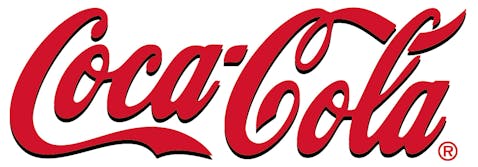Watch out, Oreos. You too, Sprite. Quit laughing, Fruity Pebbles. You aren’t immune from this, either.
In the wake of the most recent recession, many consumers are rethinking past cavalier spending habits. And a recent study shows one way people are cutting back is by switching to private-label goods. Big brands, are your days numbered?
A shift in the way people shop
According to Deloitte’s annual American Pantry Study, brand loyalty has dropped for the second year in a row, signaling a dwindling number of consumers who are staying loyal to their favorite brands. The study shows nearly nine in 10 consumers are swapping out big branded goods for private-label ones.
The survey also found that 94% of Americans indicate they’ll remain cautious and keep their spending for foods, beverages, and household goods at current levels, despite the rising stock market and strengthening economy.

Should the manufacturers of big-branded goods be scared? That depends. If they can find ways to differentiate their products and get them into consumers’ fridges and pantries, then they’ll come out OK. In fact, during the two years Deloitte’s study has shown declining brand loyalty, some very big brands have gotten even bigger.
The “Best Global Brands” list, from brand consultancy firm Interbrand, gives us a Who’s Who of the biggest brands in the beverage, food, and household-goods spaces. Here are the big four, with many of these brands having graced the list every single year since its 2001 inception.
| Company | Brand | Change in Brand Value During the Last 2 Years | 2-Year Total Shareholder Return |
|---|---|---|---|
| The Coca-Cola Company (NYSE:KO) | Coca-Cola | 10% | 35% |
| PepsiCo, Inc. (NYSE:PEP) | Pepsi | 18% | 23% |
| Kellogg Company (NYSE:K) | Kellogg’s | 9% | 20% |
| H.J. Heinz Company (NYSE:HNZ) | Heinz | 2% | 41% |
Sources: Interbrand, The Motley Fool.
If consumers are reaching for private labels more often these days, someone forgot to tell these four big-branded manufacturers. All of the companies’ respective Best Global Brands have increased in brand value during the past two years, according to Interbrand’s proprietary formula. Shareholders have also profited handsomely, with each companies’ stock returning on average at least 10% annually over this same period. And all four companies have enjoyed top-line growth over the past two years in the face of challenging global macroeconomic headwinds.
These companies successfully find ways to innovate and differentiate their brands year after year. The Coca-Cola Company (NYSE:KO) leverages its huge distribution system to roll out new products all around the globe. The cola giant boasts more than 500 brands, including 16 billion-dollar brands. PepsiCo, Inc. (NYSE:PEP), in conjunction with Yum! Brands, Inc. (NYSE:YUM)‘ Taco Bell, has been incredibly successful with its innovative Doritos Locos Taco shell, with more than 500 million sold since its March 2012 launch. (Doritos are produced by Frito-Lay, which Pepsi owns.) Kellogg Company (NYSE:K)’s emphasis on health-conscious offerings has strengthened its brand. And Berkshire Hathaway‘s acquisition of H.J. Heinz Company (NYSE:HNZ) signals that Warren Buffett sees immense value in its brand.
Foolish final takeaway
These four big-branded manufacturers continue to differentiate their products and find their way into consumers’ kitchens. The companies’ continued innovation spurs wildly sought-after products, building big brands into seemingly impenetrable blockbusters time and again.
The article 4 Companies Seemingly Immune From Brand Label Disloyalty originally appeared on Fool.com.
Fool contributor Nicole Seghetti owns shares of PepsiCo. Follow her on Twitter: @NicoleSeghetti. The Motley Fool recommends Berkshire Hathaway, Coca-Cola, H.J. Heinz, and PepsiCo and owns shares of Berkshire Hathaway and PepsiCo.
Copyright © 1995 – 2013 The Motley Fool, LLC. All rights reserved. The Motley Fool has a disclosure policy.

